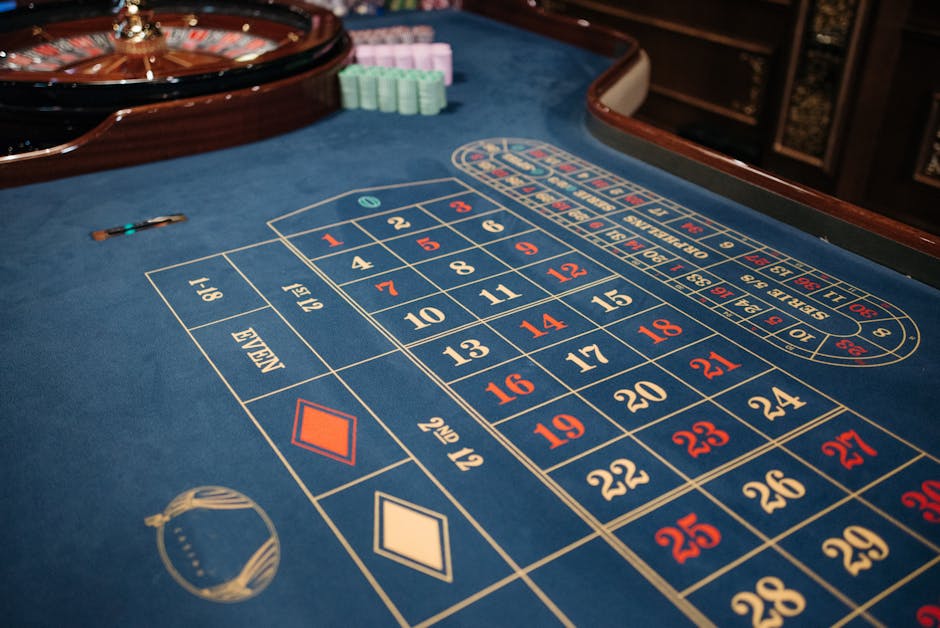What “Loose Slots” Actually Mean
Let’s break it down without any fluff. A “loose” slot machine is one that pays out more frequently or in larger amounts than others. A “tight” machine? The opposite it holds onto your money longer and gives back less. The difference comes down to something called RTP: return to player. It’s a percentage that shows how much money a machine gives back to players over time. For example, a slot with a 95% RTP returns $95 for every $100 played on average, over the long haul.
Casinos aren’t in the business of giving money away, but they’re not trying to scare players off either. Looser machines draw attention. They attract crowds, create noise, and keep the floor buzzing. Strategically placed near entrances or high traffic spots, these slots are designed to look generous even if, over time, the house still wins.
If you want to spot a loose machine, check the game’s info panel or do a quick search of its RTP. Many casinos post these numbers online for transparency or compliance. Look for games with RTPs at 95% or higher. It’s not a guarantee, but it’s a smarter starting point than just picking a machine because it “feels lucky.”
Clues to Spot a Loose Machine In the Wild
Placement Matters More Than You Think
Where a slot machine is located in a casino can influence how often it pays out or at least, how it’s perceived. Casinos often place looser machines in high visibility areas to attract players and encourage more gameplay.
Look for machines placed near entrances, food courts, or high traffic walkways
Avoid hidden rows or corner placements where visibility is low and player turnover is slower
Machines near table games or lounges may also be set to pay out more frequently to generate noise and attention
Watch the Player Flow
Observing player behavior can provide important clues. Games that stay busy might be offering better returns or at least be perceived that way by other players.
Take note of which machines are consistently occupied
Return to machines that see heavy play but haven’t had a big win recently
Don’t follow crowds blindly, but use activity level as a filter in your search
Rethinking the “Near Miss”
A lot of players believe that “almost winning” (e.g., two matching symbols with the third just off) means a machine is about to pay out. In reality, near miss scenarios are often programmed into the game design to keep you playing.
Near misses are psychological hooks, not reliable indicators of payouts
Modern slot machines use a random number generator (RNG), making outcomes unpredictable
Staying rational is key don’t assume you’re “due” for a win based on screen patterns
Know where to look, watch how others play, and stay sharp about game design tricks. Spotting looser slots is part pattern recognition, part understanding the psychology behind the setup.
Numbers Don’t Lie: Volatility and Payout Patterns

Volatility isn’t just casino jargon it’s what separates quick wins from long haul jackpots. High volatility slots deliver big payouts, but they’re fewer and farther between. Low volatility slots, on the other hand, pay out smaller sums more often. Neither is better across the board; it all depends on your game plan.
If you’re working with a tight bankroll or don’t want long dry spells, low volatility is your lane. Want a shot at a monster win and can stomach slower sessions? Then aim high. The trick is matching volatility to your style and sticking with it.
Don’t fly blind. RTP (Return To Player) charts are often tucked into the help screen of the slot or available on the casino floor summary sheet. Know what you’re signing up for. A 96% RTP on a high volatility slot doesn’t work the same as 96% on a low volatility one. It’s not just about potential it’s about payout rhythm.
Savvy players use volatility to pace their play, minimize tilt, and stretch their bankroll. It’s simple: if you know how the game’s designed to behave, you’re not just spinning you’re gambling with intent.
For a deeper breakdown, check out Slot Machine Volatility.
Player Behavior Hacks That Help
When it comes to identifying and capitalizing on loose slots, your behavior as a player plays a bigger role than most people realize. Strategy, timing, and control can collectively stretch your bankroll and improve your odds over the long term.
Smart Bankroll Management
Managing your bankroll effectively is one of the most valuable habits you can develop when playing slots. Stretching your budget over more spins increases your odds of hitting a payout and helps you stay in the game longer.
Set a clear budget before you start
Divide your bankroll into session based limits
Resist the urge to increase your bet size after small wins
Walk away if you hit your limit win or lose
Know When to Walk Away
The myth of the “hot machine” can blur judgment. A few wins in a short period can feel like a machine is on your side, but randomness is always in control. Learning when to step away is crucial.
Don’t chase wins after a lucky streak
Avoid re feeding money into the same machine hoping it stays hot
Track your sessions: if your winnings disappear, reset your strategy
Optimize Session Timing
While slots are programmed to pay out randomly, your timing can still play a role. Casinos have peak hours, shifts in traffic, and player saturation all of which can impact your machine choice and environment.
Visit during off peak hours for greater machine access and less competition
Observe payout patterns across different times of day
Don’t rush: give yourself space to observe which machines are drawing frequent wins
Being intentional about your gameplay turns casual betting into informed decision making. It won’t guarantee a jackpot but it will improve your staying power and help identify machines worth your time.
Myths That Waste Your Time
Let’s get something straight: slot machines don’t run on clocks. The idea that machines pay out more at certain times of the day is one of the oldest and laziest myths in the book. Payouts are driven by random number generators (RNGs), not the clock on the wall. Whether it’s 9 a.m. or midnight, the results are still random. Casinos don’t need to rely on time tricks to control payouts they’ve got math for that.
Same goes for hopping from machine to machine thinking you’ll outsmart the system. Shifting to a new slot just because the last one “felt cold” is usually a waste of bankroll. Each spin is independent. If a game has a 95% RTP, it doesn’t care that you lost ten spins in a row it’s not due to “make up for it.”
Now, the idea that casinos “manipulate” machines to block wins is mostly noise. Reputable casinos are heavily regulated. You’re more likely to get struck by lightning than play a rigged machine in a licensed venue. If you’re gambling online, stick to trusted platforms with licensed software. That’s your real protection, not superstition.
Leave the myths at the door. If you’re serious about playing smarter, focus on game mechanics not old wives’ tales.
Final Word: Strategy Over Luck
Yes, loose slots exist but they won’t have neon signs above them. Spotting one takes more than gut feeling or somebody’s blog post from 2009. It’s about watching patterns: payouts, volatility levels, player behavior. Casual players might call it luck. It’s really a mix of instinct sharpened by stats.
Still, don’t let the chase hijack your night. Slots are entertainment first, math puzzles second. Know what you’re risking and stay sharp with your budget. Walk away when the fun stops, not when your wallet forces the issue.
If you want to take a closer look at the math behind volatility and how to apply it to your play style, check out this piece on Slot Machine Volatility.


 Founder & CEO
Williamsonn Grajedaral is the founder and driving force behind Dice Gamblers Deal, a platform dedicated to providing expert strategies, in-depth analysis, and essential updates on blackjack, card games, slot machines, and roulette. With over a decade of experience in the gambling industry, Williamsonn’s passion for gaming and his keen understanding of table game mechanics led him to create a space where players could not only learn but thrive in the world of casino games. As the founder, he sets the tone for the company, shaping its mission to provide players with the knowledge they need to make strategic decisions and increase their odds of winning. Under his leadership, Dice Gamblers Deal has grown into a trusted resource for both novice and experienced players, offering expert tips, comprehensive guides, and the latest gambling trends. Williamsonn’s dedication to the community ensures that Dice Gamblers Deal remains at the forefront of the gaming world.
Founder & CEO
Williamsonn Grajedaral is the founder and driving force behind Dice Gamblers Deal, a platform dedicated to providing expert strategies, in-depth analysis, and essential updates on blackjack, card games, slot machines, and roulette. With over a decade of experience in the gambling industry, Williamsonn’s passion for gaming and his keen understanding of table game mechanics led him to create a space where players could not only learn but thrive in the world of casino games. As the founder, he sets the tone for the company, shaping its mission to provide players with the knowledge they need to make strategic decisions and increase their odds of winning. Under his leadership, Dice Gamblers Deal has grown into a trusted resource for both novice and experienced players, offering expert tips, comprehensive guides, and the latest gambling trends. Williamsonn’s dedication to the community ensures that Dice Gamblers Deal remains at the forefront of the gaming world.
